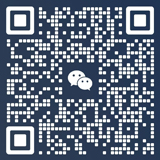What is the difference between goods entering the country under customs supervision and goods entering the country
Source:本站 Time:2024/9/18 10:11:50 frequency:
According to relevant laws and regulations, China's customs differentiate imported goods into different regulatory objects such as goods and items, and apply different management requirements, including tax rates, customs clearance methods, permits, etc. Generally speaking, goods cannot be used for trade and belong to the category of self use, while goods have a trade nature. Based on this, the specific regulations of customs on their entry are not the same. The obligations arising from the entry of the same commodity into the country according to the goods are different from those arising from the entry of goods. The following is a distinction between the two concepts:
(1) Items. According to the different ways of entry and exit, inbound and outbound items can be divided into two categories: luggage items and postal items. Personal luggage items include carry on, checked in, and separately transported luggage items (referred to as "luggage items" in this article); Luggage and Items; It is a personal carry on luggage item; Postal items include mail bags, personal parcels, small parcels, insured letters, and non trade printed materials.
According to relevant laws and regulations, items have the following characteristics:
1. For personal use. The item is intended for the personal use of the passenger or recipient, rather than for sale or rental, and includes mutual gifts between family and friends both domestically and internationally.
2. Reasonable quantity. That is,“ The normal quantity determined by customs based on the situation of the passenger or recipient, the purpose of travel, and the duration of residence. ” Within a reasonable quantity, the person carrying self use items obtained overseas shall be exempt from taxation. If the quantity exceeds the reasonable limit but still falls within the scope of self use, the excess portion shall be subject to taxation. Our country's laws in this regard are; Luggage and Items; And“ Postal Items” There are different regulations.
(1) Luggage items. If inbound resident passengers carry self use items obtained overseas with a total value of less than 5000 RMB (including 5000 RMB, the same below); Non resident passengers carrying self use items intended to stay within the country, with a total value of up to RMB 2000 (including RMB 2000, the same below), will be granted duty-free clearance by the customs. If it exceeds a reasonable amount but is within the prescribed amount, the customs will impose taxes on the excess self use items. If it exceeds the scope of self use and the prescribed amount, the customs will impose taxes on the goods according to the goods.
A single variety is limited to personal use and a reasonable quantity, but tobacco products, alcohol products, and 20 types of goods that are subject to taxation according to national regulations shall be handled separately in accordance with relevant regulations.

(2) Postal items. If the import tax on postal imported goods exceeds 50 RMB, it shall be levied in full according to the value of the goods. Items sent by individuals to or from Hong Kong, Macau, and Taiwan are limited to a maximum value of 800 RMB per shipment; Items sent from or to other countries and regions are limited to a value of 1000 RMB per shipment. Individuals who mail inbound and outbound items exceeding the prescribed limit should handle the return procedures or go through customs clearance procedures according to the regulations for goods.
(2) Goods. The goods have a trade nature and belong to the scope of the Foreign Trade Law. The buyer and seller of goods have a trade relationship and need to clarify their legal relationship through contracts and agreements. According to the purpose of entry and exit, goods can be divided into three categories: imported goods, exported goods, and other imported and exported goods (in this article, goods refer to imported and exported goods). The specific regulations of customs on the supervision of goods and commodities vary greatly. In terms of taxation, the taxes that generally need to be paid for imported goods include tariffs, value-added tax, and consumption tax. According to the law, goods with reduced or increased tariffs also need to pay value-added tax and consumption tax. In addition, taxation on imported and exported goods often involves a country's economic policies and trade relations with other countries or international organizations.
Therefore, does it belong to the category of; For personal use” “ Reasonable Quantity; Category is the primary criterion for distinguishing goods from items. Based on this, the following points should be noted:
1. If the duty-free imported goods are sold, transferred, rented or used for other purposes within two years from the date of entry, approval should be applied to the customs and taxes should be paid according to regulations. Among them, if a car that is exempt from taxes or levies according to regulations needs to be transferred due to special reasons after two years of use, it must be approved by the customs; For tax-free imports, taxes should be paid according to regulations.
2. Some tour guides take advantage of the convenience of leading tours and instruct passengers to bring their purchased items into the country or evade customs supervision in other forms. Bringing the goods into customs in a dispersed manner may meet the requirements; Reasonable Quantity; The conditions, but it is for trade purposes and does not belong to the category of '; For personal use” Category, in terms of nature, is still; Goods;.




